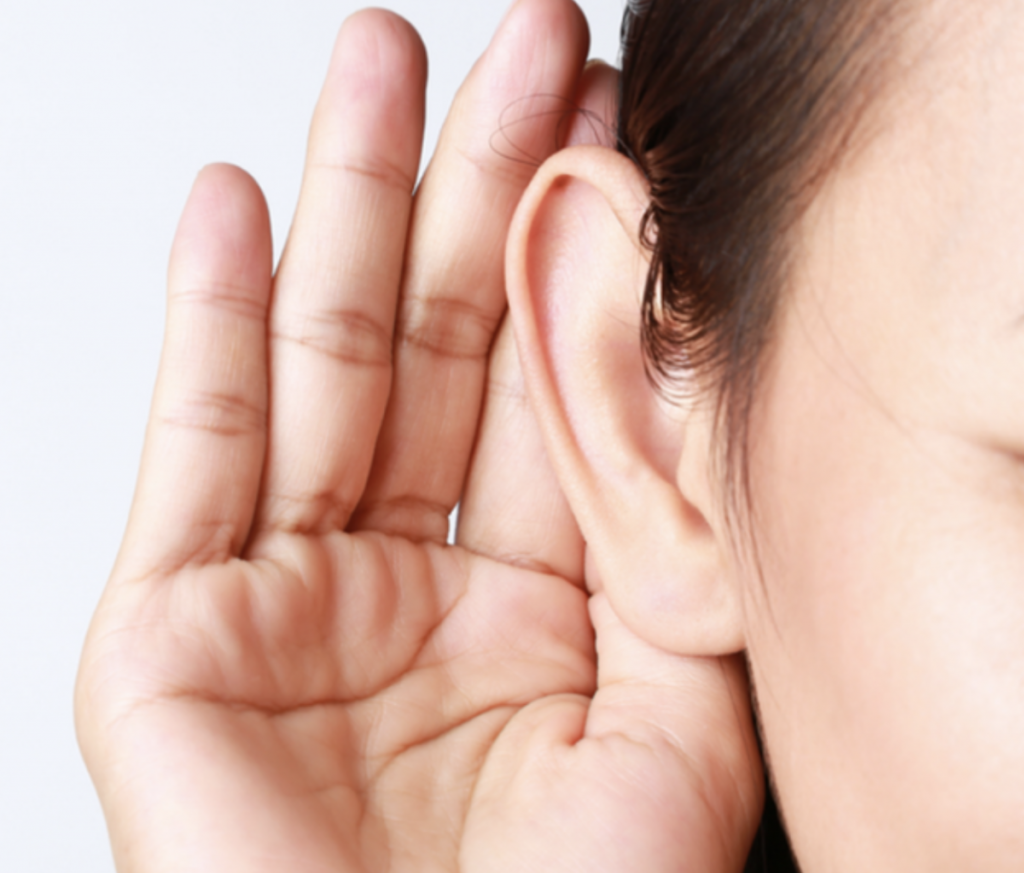Tinnitus Therapy

If you’re experiencing persistent buzzing, whistling or ringing in your ears, we understand how frustrating and debilitating it can be. It’s a condition that affects millions of people worldwide, but relief is available.
Harley Street Hearing’s clinical audiologists have helped patients overcome and alleviate the symptoms caused by tinnitus, through accurate diagnosis and effective tinnitus retraining therapy. To find out more about our London tinnitus clinic, get in touch with us today.
Tinnitus diagnosis
Tinnitus can be caused by many different things including overexposure to loud noises and underlying health conditions. Everyone experiences tinnitus differently and the condition is highly individual, but the first step towards finding relief is seeking an accurate diagnosis.
Harley Street Hearing’s experienced audiologists offer complete tinnitus evaluations which consist of a thorough examination of the auditory system using specialised tests and a comprehensive hearing test.
We’ll discuss your medical history and ask personalised questions about your symptoms to form a fully tailored treatment plan designed to alleviate your symptoms and improve the quality of your day-to-day life.
For tinnitus, an early diagnosis is essential to addressing the underlying cause and is conducive to helping reduce its impact sooner. If you think you’re suffering from tinnitus, book a consultation using the button below.
Treatment for tinnitus
Whilst there is no cure for tinnitus, there are many strategies to help you manage the condition and the symptoms associated with it. The method which will be the most effective depends entirely on individual circumstances, which is why it’s important to seek advice from an audiologist first.
Tinnitus sound therapy or sound enrichment can be a great way to help with the negative impact tinnitus has on those afflicted with it.
Techniques such as using a fan at night, listening to natural sounds such as water or even using ASMR (soft soothing sounds that cause a tingling sensation in the scalp and back of the neck) can be effective in alleviating tinnitus symptoms.
At Harley Street Hearing, our tinnitus sound therapy treatment uses a specific set of fractal tones (harmonic and melodic tones that sound like ‘wind chimes’) to help promote reduced awareness of tinnitus and can help even those with the most severe symptoms.
Harley Street Hearing can provide tinnitus sound therapy machines, which are comparatively inexpensive compared to the benefits that they offer. When used, these allow for a range of tones, such as white noise, or fractal tones (harmonic and melodic tones that sound like wind chimes), for therapy for tinnitus.
Harley Street Hearing are proud to supply Tinearity G1, a revolutionary tinnitus treatment. This small sound generator emits white noise). The device uses the bone conduction pathway transmitting the sounds directly to the inner ear via the skull instead of through the ears, leaving the ear canal free.
Using white noise can be an effective tool to reduce awareness of tinnitus and train the brain to interpret tinnitus sounds as part of the natural background noise.
Whilst having tinnitus doesn’t mean you will automatically have a hearing loss, in many cases, hearing aids can provide relief for both tinnitus and hearing loss.
Harley Street Hearing works with all leading hearing aid manufacturers and can offer an extensive range of tinnitus hearing aids tailored to your individual needs.
In cases where the underlying cause is exposure to loud noises but this is unavoidable due to the nature of your work or environmental conditions, we can provide custom hearing protection to shield the ears from further damage.
Tinnitus assessment packages
Tinnitus Sound Therapy Package
Sound therapy creates a contrast between tinnitus and silence and is a structured approach that involves the use of a wearable noise generator (WNG) – a device similar to a hearing aid.
Repetitive non-invasive sounds (such as broad spectrum noises or fractal tones i.e. random, chime-like tones that aren’t predictable) can help make a difference because it takes the brain’s focus away from the ringing by reducing the contrast between the background sound and the tinnitus and promotes habituation (teaching the brain to stop paying attention to the tinnitus sounds).


Tinnitus Retraining Therapy Package
This technique combines the approach of Sound Therapy coupled with Tinnitus-focused Cognitive Behavioural Therapy (CBT) exercises. The aim is to promote habituation and also address negative emotional responses that can exacerbate symptoms.
Together, these techniques help to address the physiological and perceptual symptoms associated with tinnitus.
Contact our tinnitus therapy clinic
If you are worried about tinnitus, Harley Street Hearing can help. We have a highly skilled team of clinical audiologists at our private tinnitus clinics in London who can provide specialist support and devise the most suitable course of treatment for you. If you are experiencing pulsatile tinnitus, we can suggest ENTs who specialise in treating this condition.
Please call us for a tinnitus appointment or complete the form below to discuss the impact tinnitus has on your life.
tinnitus is the presence of an aural sensation in the ears, such as a sound, but whose source is not external to the ears. Put another way – hearing a sound in the ear in the absence of a sound source outside of the ear. Tinnitus is not a condition in and of itself but a symptom usually as a result of an underlying condition such as age-related hearing loss. Tinnitus manifests itself differently for different people, some may describe it as a buzzing noise, or a “whooshing sound” or a ringing or even a buzzing sound among others.
tinnitus has many related triggers, and they can differ from person to person. Ear-related triggers can include but are not limited to, hearing loss or changes in hearing, infections of the ear, wax blockages in the ear, barotrauma, or excessive noise exposure. Whilst non-ear related triggers such as whiplash injuries, muscle tension, jaw pain and stress can also contribute to tinnitus development.
though at present no pharmaceutical cures for tinnitus exist, it is possible to manage the symptoms of tinnitus through therapeutic means. Techniques such as sound enrichment and tinnitus-focused cognitive behavioural therapies (CBT) are useful to reduce the awareness and distress associated with tinnitus.
there is no set duration for tinnitus and as a result it can last for a variable period as it may depend on the underlying condition that is contributing the tinnitus. Tinnitus awareness is typically affected by one’s perception of it, therefore if one can reduce their awareness of their tinnitus this can help to make the tinnitus not last for a long time.
tinnitus is a subjective phenomenon and those with tinnitus experience it differently from one another. Tinnitus has often been described with words such as: buzzing, humming, whooshing, ringing, whistling and musical. There is no one tinnitus sound.
research studies suggest that effective treatments for management of tinnitus can include Tinnitus-focused CBT (cognitive behavioural therapies) therapies, as well as forms of sound enrichment or hearing technologies, especially if there is underlying hearing loss that is present.
triggers that may affect tinnitus can be different for everyone. It is important to note that these triggers may not negatively impact one’s tinnitus on a permanent basis but can temporarily make the tinnitus appear more intrusive. Generally, it is noted that exposure to excessively loud noise, deterioration in hearing or proper function of the auditory system, stress and fatigue, and use of certain medications can be possible contributors that can aggravate tinnitus.
tinnitus does not directly impact one’s sleep, however the awareness of the sound might be intrusive and cause one to feel anxious and frustrated, or increase wakefulness which may prevent sleep. Treatments that help to manage tinnitus awareness and promote relaxation can be beneficial in helping one fall off to sleep despite tinnitus.
tinnitus can be perceived as louder if the sound environment becomes quieter or if a person has been subject to their triggers, such as noise exposure or stress, or if there has been change to the hearing and auditory system. If you have noticed changes in your tinnitus it is best to speak with either your audiologist or practitioner.
data from the BTA (British Tinnitus Association) suggests that the percentage of people in the UK living with some form of tinnitus is approximately 13%, or about one in every eight people.
perception and tinnitus go hand-in-hand. It can be easier for you to perceive or be aware of your tinnitus if the sound environment is quieter. Typically, at night time the aim is to make the room quieter and remove background noises to facilitate sleep however this can make it easier to notice tinnitus and make it seem like the tinnitus is louder and more intrusive than it was before.
Tinnitus can interfere with your hearing, but it does not cause hearing loss.
Hearing aids may provide relief from tinnitus as they work to amplify sounds which may provide a distraction and make the tinnitus less noticeable.











